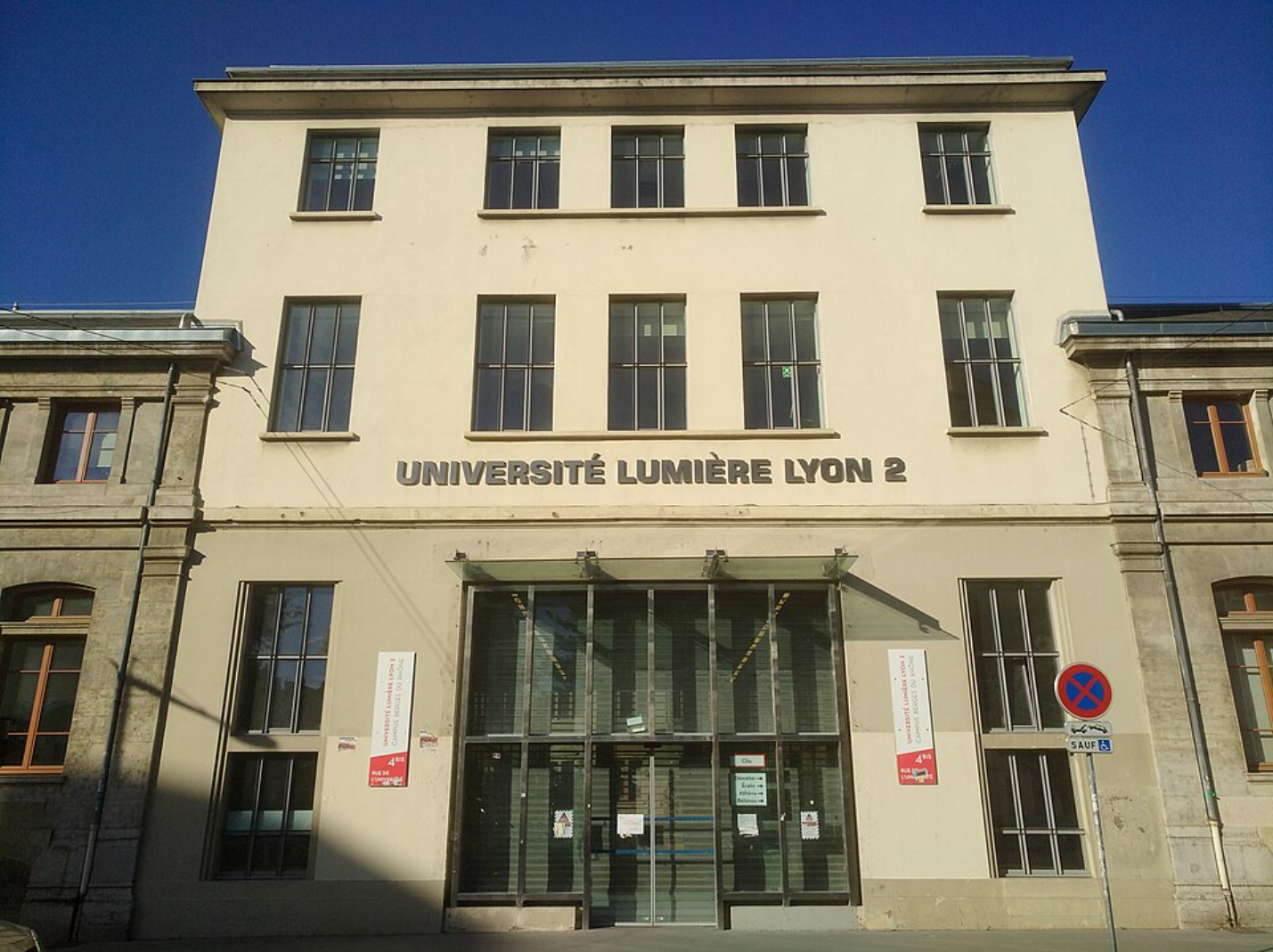
Editor’s Note: The following article was originally published by the Observatory of University Ethics on April 10, 2025. The Observatory translated it into English from French. I have edited it, to the best of my ability, to align with Minding the Campus’s style guidelines. It is crossposted here with permission.
Last April, Fabrice Balanche, a lecturer and research director in political geography at the University of Lyon-2, was prevented from giving his lecture by the aggressive intrusion into the lecture hall by a group of masked “pro-Palestinian” activists. Violently booed, the lecturer refused to accept the confrontation by leaving the room. While he has not filed a personal complaint, Fabrice Balanche nevertheless expects the university administration to take its institutional responsibilities beyond its deploring of the situation and its verbal assurances to “do everything possible to ensure it does not happen again.”
This is indeed an incident symptomatic of the intimidation increasingly exerted on this university and on the academic institution in general by totalitarian-inspired militants advocating revolutionary violence against a fantasized West and against Israel, considered its expression in the Middle East. This Islamo-Wokist movement, which has today gained an often dominant position in academic, research, and cultural circles, no longer hesitates to physically prohibit the free expression of rational scientific discourse, as well as the conduct of peaceful, contradictory debates.
The fact that Fabrice Balanche, like other researchers before him—Gilles Kepel, Bernard Rougier, Florence Bergeaud-Blackler, who were also intimidated and threatened—deals with Islamism in a critical and non-apologetic manner and dismantles its mechanisms is obviously an aggravating factor for the Islamist component of this Islamo-leftist movement.
After having invested the main decision-making bodies in the recruitment of teacher-researchers and researchers, this current, which advocates a “militant science” and calls itself “critical,” tolerates, even encourages, the “excesses” of its most agitated elements, notably among students.
It is therefore clearly the responsibility of the university institution to commit to a reversal of this trend, which not only threatens the freedom of teaching, including physically, all those who do not share its dogmas, but also is harmful to the level of teaching and the robustness of research.
[RELATED: Anti-Semitism in Universities Is Uncivil and Incompatible with Sound Education]
This is why, beyond the resolute affirmation of support for Fabrice Balanche, whose expertise on the Middle East and particularly on Syria is incontestable, while of course being susceptible to being discussed in a scientific manner, the signatories of this platform ask the presidency of the University Lyon-2, the exclusion from the university of the student demonstrators if indeed they are, and expect from him as well as from that of Mrs. Élisabeth Borne, Minister of State, Minister of National Education, Higher Education and Research, to file a civil action against the attackers of Fabrice Balanche.
Signatories:
Gilbert Abergel, President of the Secularism and Republic Committee
Florence Bergeaud-Blackler, Anthropologist, CNRS Research Fellow
Thierry Blin, Lecturer in Sociology (HDR), University of Montpellier III
Jean-Michel Blanquer, Professor of Public Law, President of the Laboratory of the Republic
Ivan Burel, Associate Professor, Doctor of History
Joseph Ciccolini, University Professor – Hospital Practitioner
Charles Coutel, Philosopher
Philippe de Lara, Honorary Lecturer at Panthéon-Assas University
Christophe de Voogd, Doctor of History, Associate Researcher at Sciences Po
Albert Doja, Professor of Anthropology, University of Lille
Frédéric Encel, Professor of Geopolitics
Jean-François Eliaou, Professor of Immunology, Faculty of Medicine, University of Montpellier. Former Member of Parliament
Michel Fichant, Philosopher, Professor Emeritus
Luc Ferry, Philosopher, former Minister of National Education, Research, Higher Education and Youth
Renée Fregosi, Philosopher and political scientist, President of CECIEC
Marc Fryd, English lecturer, HDR University of Poitiers
Violaine Géraud, Professor of French language and literature, Lyon3-Jean Moulin University
Gilles Guglielmi, Professor of Public Law, University of Paris II Panthéon-Assas
Emmanuelle Hénin, Professor of Comparative Literature at Sorbonne University
Patrick Henriet, Director of Studies, Practical School of Advanced Studies
Nathalie Krikorian-Duronsoy, Historian and Philosopher
Michel Lalande, Honorary Prefect
Claire Laux, Professor at Science Pô Bordeaux
Franck Leprévost, Mathematician and computer scientist, Professor at the University of Luxembourg
Céline Masson, University Professor of Clinical Psychopathology
Samuel Mayol, Senior Lecturer HDR
Gérard Mermet, CEO of Cabinet Francoscopie
Michel Messu, Honorary Professor of Sociology
Leonardo Orlando, Political Science Researcher
Carlos Pereira, Senior Lecturer in Linguistics at the Sorbonne-Nouvelle University
André Quaderi, Professor at the University of Côte d’Azur
Mireille Quivy, Linguist
Jacques Robert, Professor Emeritus of Cancerology, University of Bordeaux
François Roudaut, University Professor
Xavier-Laurent Salvador, lecturer
Bruno Sire, Associate Professor of Management Sciences, Toulouse Capitole University
David Smadja, Professor of Hematology, University of Paris-Cité
Annick Schwebig, President of Cell
Nathalie Sonnac, University Professor
Thierry Taboy, Artificial Intelligence Expert
Pierre-Henri Tavoillot, Philosopher, Sorbonne University
Thibault Tellier, Professor of Contemporary History, Sciences-Po Rennes
André Tiran, Professor Emeritus, University of Lyon 2
Vincent Tournier, Lecturer in Political Science at IEP Grenoble
Dominique Triaire, Professor Emeritus of French Literature, University of Montpellier
François Vazeille, Emeritus Research Director at LPC Clermont (CNRS/Université Clermont Auvergne)
Pierre Vermeren, Professor of History, University of Paris 1 Panthéon-Sorbonne
Frédéric Wehrlé, Former senior international civil servant
Caroline Yadan, Member of Parliament
For insights on higher education worldwide, explore our Minding the World column, offering news, op-eds, and analysis.
Image: “Entrée université Lumière Lyon II site des Quais” by Sebleouf on Wikimedia Commons